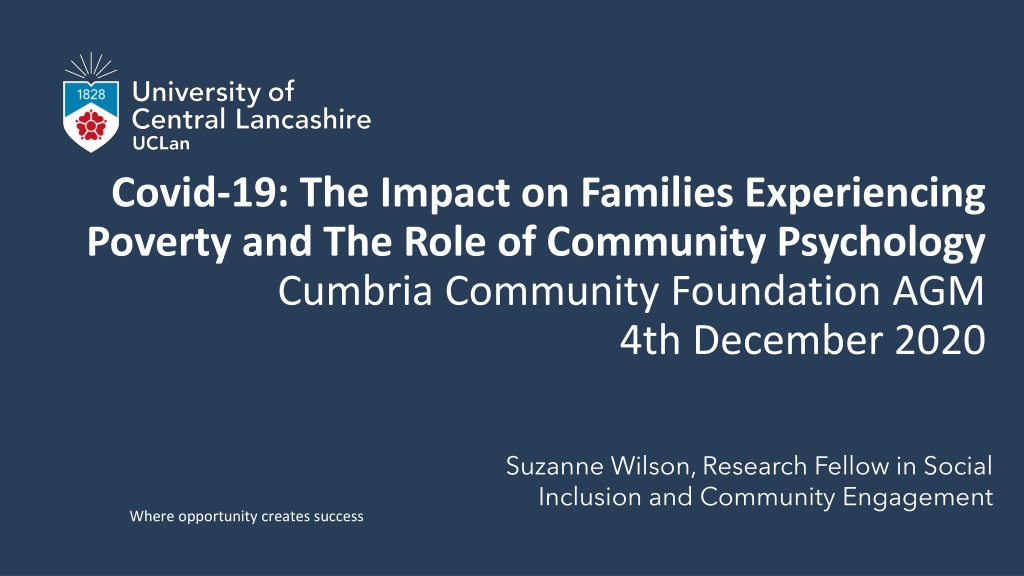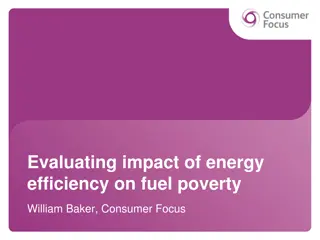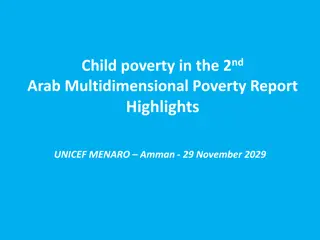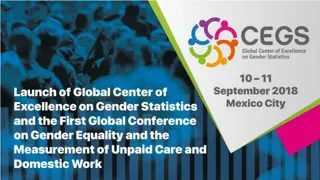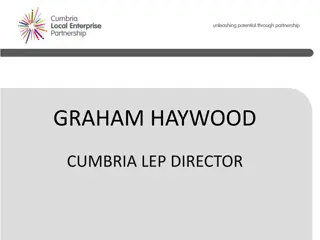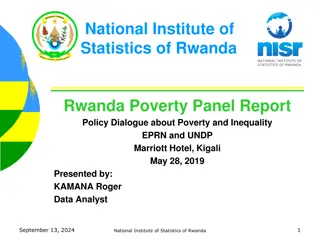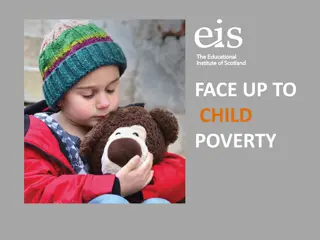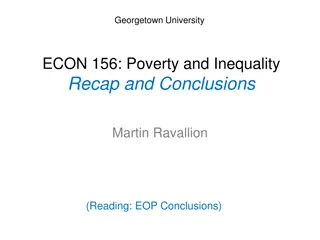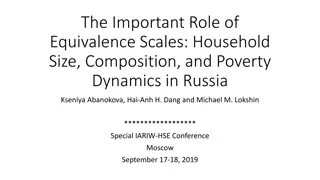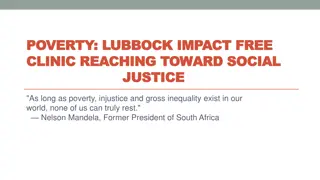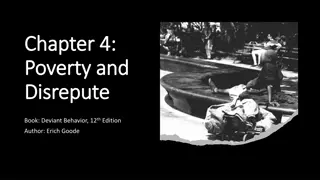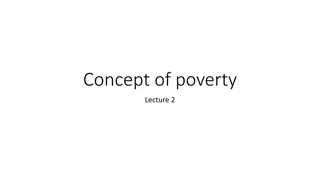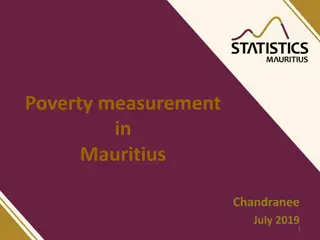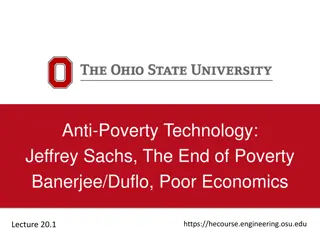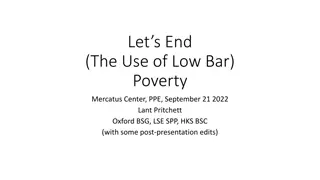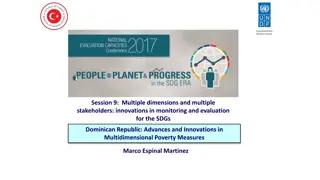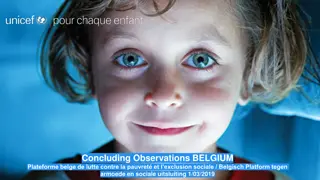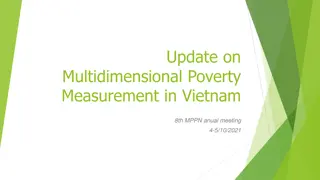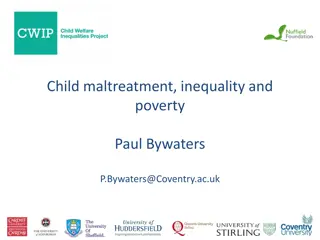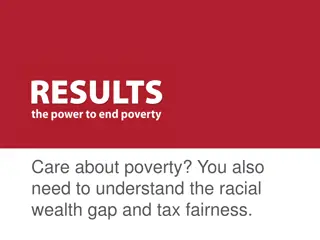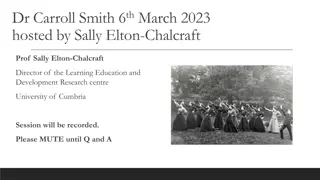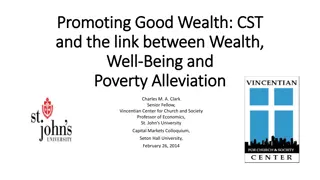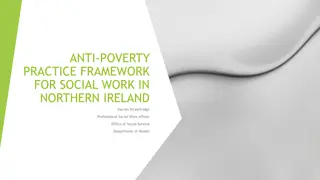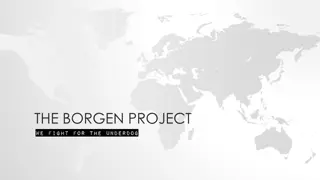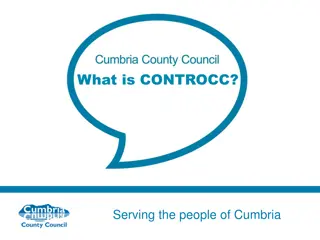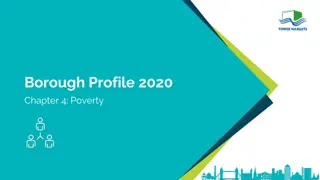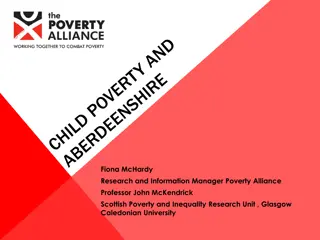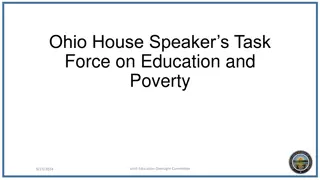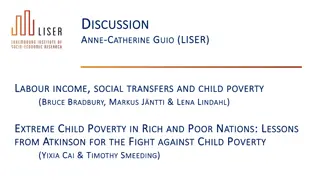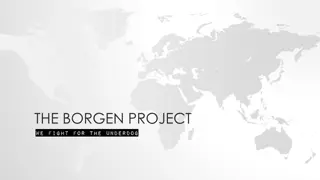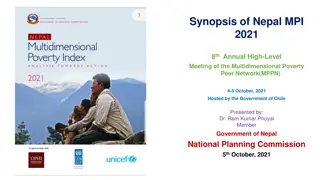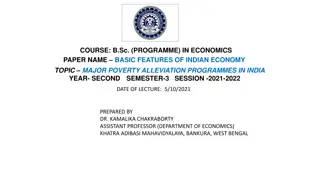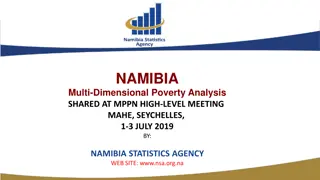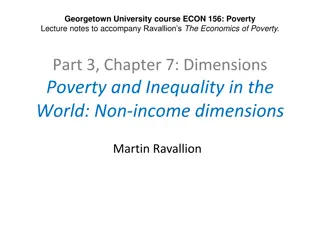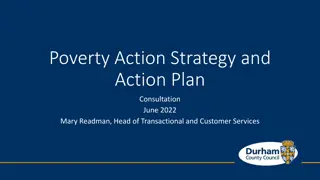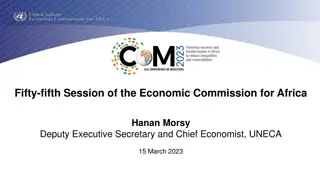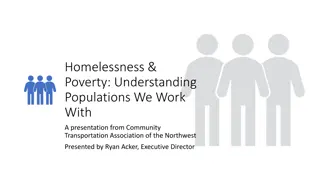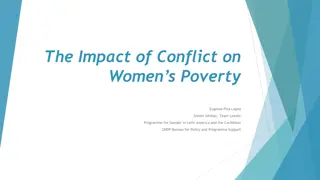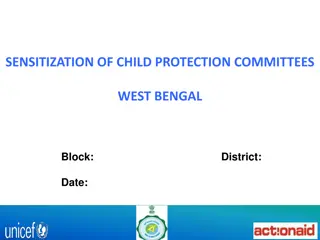Impact of Covid-19 on Child Poverty in West Cumbria: Insights and Actions
The Covid-19 pandemic has exacerbated child poverty in West Cumbria, with vulnerable groups disproportionately affected. Research and initiatives led by Suzanne Wilson shed light on the worsening situation, highlighting the need for community psychology interventions and advocacy efforts to address this pressing issue.
Download Presentation

Please find below an Image/Link to download the presentation.
The content on the website is provided AS IS for your information and personal use only. It may not be sold, licensed, or shared on other websites without obtaining consent from the author. Download presentation by click this link. If you encounter any issues during the download, it is possible that the publisher has removed the file from their server.
E N D
Presentation Transcript
Covid-19: The Impact on Families Experiencing Poverty and The Role of Community Psychology Cumbria Community Foundation AGM 4th December 2020 Suzanne Wilson, Research Fellow in Social Inclusion and Community Engagement Where opportunity creates success
Covid-19 Related Research and Work West Cumbria Child Poverty Forum: Leading focused child poverty campaigns including a rapid response paper in May, a webinar in October and a follow up paper in December 2020 (Wilson, 2020a; Wilson, et al., in press). British Psychology Society s Working Group on Community Action and Resilience following Covid-19: Contributing to a number of publications on the subject, such as Psychological insights for facilitating community resilience to respond to consequences of the Covid-19 pandemic (Dury, et al., 2020). Central Government: Submitted a number of pieces of evidence to the UK House of Common s Education Select Committee, all of which have been published by the UK Government (Wilson, et al., 2020a; Wilson, et al., 2020b). Provided oral evidence on white working-class families and the of the community in educational attainment. Corona Diaries: Completing a book sharing the experiences of children in low-income communities which will be followed by workshops in primary schools in West Cumbria and Northumberland. Other publications relating to the impacts of Covid-19 on young people and families include an article in The Conversation (Wilson, 2020b), contributing to the European Federation of Psychologists' Associations' Support Hub about COVID-19 Crisis (Wilson, 2020c), and reflective piece calling for opportunities for young people to enact their citizenship during and after the crisis (Wilson, 2020d).
The Secondary Impact of Covid-19: Worsening Child Poverty Children experiencing poverty are expected to suffer disproportionality from economic and social impacts of the measures needed to contain the pandemic (Save the Children, 2020). Younger households, households with children and households with lower levels of education are the most likely to fall into poverty as a consequence of Covid-19 (OECD, 2020). Children are not the face of this pandemic. But they risk being among its biggest victims (UN, 2020). Child Poverty in the UK In the UK 200,000 more children expected to experience poverty, along with 4.2 million children who were living in poverty before the pandemic (Institute for Public Policy Research, 2020). Before the pandemic 30% children were experiencing poverty, with 66% coming from families were at least one member of their family worked (End Child Poverty, 2020).
Child Poverty in West Cumbria, UK A county of two halves: % Welfare Benefits Increase Cumbrian Coast Lake District National Park Lake District National Park Predominately industry Predominately tourism and leisure Cumbrian Coast Pre Covid situation: Existing poverty Pre Covid situation: Affluent areas UK Existing vulnerable groups Newly vulnerable groups 0 50 100 150 200 250 300
Child Poverty in West Cumbria: Through the Eyes of Professionals Child Poverty Rapid Response Paper (May 2020) Wellbeing Education Hardship Child Poverty Webinar (October 2020) & Follow Up Report (December 2020) Early Years Food insecurity Digital exclusion Health and wellbeing
Child Poverty in West Cumbria: Through the Eyes of Children and Young People Corona Diaries Book The Virus Family and Friends Learning from Home Exploring Outside Getting Creative Spreading Hope through Community Spirit Back to School Book to be launched March 2021. School workshops and projects with local partners to follow.
Recommendations Organisations must work collaboratively to every child experiences food security. Digital exclusion is widening the attainment gap and must be addressed. Schools are key anchor institutions and should be viewed accordingly. Trust in the local expertise and ability of local community group by sharing power. Listen to, and respond to, the voice of the child. Champion the benefits of collaborationand data sharing. WCCPF recommendthe formationof a therapeuticcommunity along these lines as a starting point: "in order to realise their potential as individuals and active citizens, children require an environment that fosters personal growth. They need to form relationships with others in an atmosphere of trust and security, they need to be valued, accepted and supported by those around them and they need to take real responsibility for themselves, others and their environment" (Oxford Health Complex Needs Service, 2018).
References Crowley, A., & Vulliamy, C. (2007). Listen up. Children and Young People Talk: About Poverty. Available at https://resourcecentre.savethechildren.net/sites/default/files/documents/4631.pdf (accessed on 15.6.19) Department for Work and Pensions (2020). Universal Credit statistics: 29 April 2013 to 10 September 2020. Available at: https://www.gov.uk/government/statistics/universal-credit-statistics-29-april-2013-to-10- september-2020[accessed on 07.11.2020]. Dury, et al., (2020). Psychological insights for facilitating community resilience to respond to consequences of the Covid-19 pandemic. British Psychological Society. Available at https://www.bps.org.uk/sites/www.bps.org.uk/files/Policy/Policy%20-%20Files/Facilitating%20community%20resilience%20to%20respond%20to%20consequences%20of%20Covid-19.pdf [accessed on 07.11.2020]. End Child Poverty (2020). Child Poverty in Your Area. Available at: http://www.endchildpoverty.org.uk/child-poverty-in-your-area-201415-201819/ [accessed on 07.11.2020]. Eurostat (2019). Statistics on young people neither in employment nor in education or training. Available at: https://ec.europa.eu/eurostat/statistics (accessed on 15.6.19) Institute for Public Policy Research (2020). 1.1 million more people face poverty at end of 2020 as a result of coronavirus pandemic, finds IPPR. Available at [accessed on 22.11.20]. Ridge, T. (2011). The everyday costs of poverty in childhood: A review of qualitative research exploring the lives and experiences of low income children in the UK. Children & Society, 25(1), 73-84. The Children s Society (2016). Poor Mental Health: The links between child poverty and mental health problems. Available at: https://www.childrenssociety.org.uk/sites/default/files/poor_mental_health_report.pdf (accessed on 15.6.19) Wilson, S. (2020a). Child Poverty: The impact of COVID-19 on families in West Cumbria. Available at: https://clok.uclan.ac.uk/33498/1/WCCPF%20Child%20Poverty%20and%20COVID-19%20May%202020.pdf [accessed on 07.11.2020]. Wilson, S. (2020b). Coronavirus aftermath: how do communities recover from trauma? The Conversation. Available at: https://theconversation.com/coronavirus-aftermath-how-do-communities-recover-from- trauma-134967[accessed on 07.11.2020]. Wilson, S. (2020c). Community Renewal After Covid-19. In: European Federation Psychologists Association, Community renewal following COVID-19, 4 June 2020, Webinar. Wilson, S. (2020d). Action for Youth Citizenship - A moral imperative. Available at: https://www.uclan.ac.uk/research/explore/groups/assets/action-for-youth-citizenship-suzanne-wilson.pdf [accessed on 07.11.2020]. Wilson, S., et al. (in press). Building a Therapeutic Community around Children Experiencing Poverty. Wilson, S., et al. (2020a). Response to Parliamentary Select Committee on the impact of COVID-19 on Left behind white pupils from disadvantaged backgrounds: Call for Evidence. Available at: https://committees.parliament.uk/writtenevidence/5772/pdf/ [accessed on 07.11.2020]. Wilson, S., et al. (2020b). Response to Parliamentary Select Committee on the Impact of COVID-19 on Education and Children s services: Call for Evidence. Available at: https://committees.parliament.uk/writtenevidence/9024/html/ [accessed on 07.11.2020].
Thank you for your time. Suzanne Wilson swilson21@uclan.ac.uk
